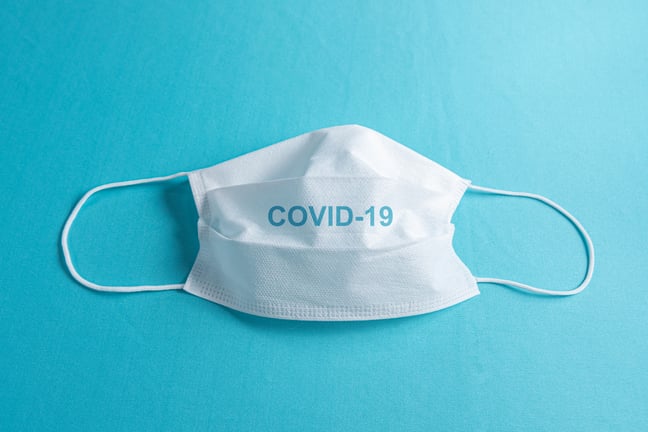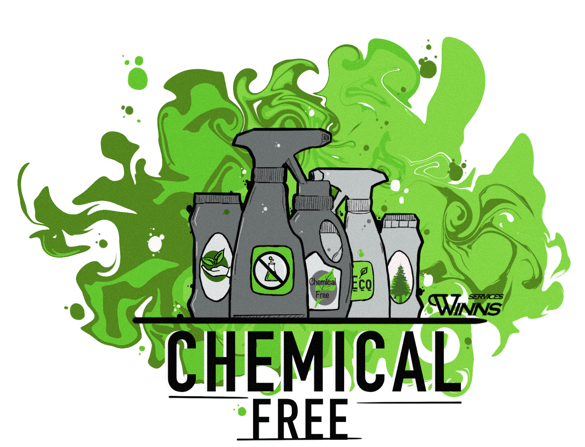It is essential for organisations to be aware of trends within their sector in order to plan and mitigate challenges in a timely manner whilst at the same time maneuvering themselves into a position that allows them to embrace market opportunities to facilitate growth and sustainability.
CURRENT CHALLENGES:
- Staff Shortages
- High Turnover Rate
- Employee Retention
- COVID, Brexit, Energy & Financial crisises
- Fierce Competition
- Client Retention
- Vendor Consolidation
- Increasing costs
CURRENT OPPORTUNITIES:
- Sustainability - Green Cleaning
- Increased Public Health
- Technologies
- Speciality and Ad-hoc Cleaning
- Specialised Cleaning
- Improved Efficiency
CURRENT CHALLENGES:
STAFF SHORTAGES
The British Cleaning Council (BCC) note that the, ‘Cleaning and hygiene industry is facing ‘severe’ staff shortages and claim a 252% increase in the last six months reported by one of the biggest commercial cleaning firms in UK’. The situation has been exacerbated by COVID, Brexit and the changes to imigration rules of 2020 (10) which catorgorised hygiene staff as ‘exempt from skill’ and not recognised as a shortage occupation (10) making it harder for UK forms to recruit from overseas, a pool from which a large percentage of employees historically were drawn.
‘Either the government doesn’t know the scale of the problem the cleaning industry is facing or they don’t realise the potential hygiene issues that may be realised as a result’ Jim Melvin, BCC Chairman and Group CEO. (10)
HIGH TURNOVER RATE
The cleaning sector is already recognised as a high turnover industry where turnover rates reportedly 'average approximately 75% annually" making retention a constant issue. This perception of low skill level is endemic within commerce and results in low morale and cleaning being viewed by employees as a stepping stone or temporary filler on the way to a recognised career.
High turnover often leads to ‘panic’ recruitment where candidates may not be the best long-term fit, but good enough for now as vacancies put pressure on existing staff, adversely affects standards, redirects human resources away from innovation and allows for good staff to be seduced by promises of better pay and conditions, although, in reality, each organisation is facing the same challenge.
.jpg?width=560&height=358&name=11%20(1).jpg)
EMPLOYEE RETENTION
Despite long deep set perceptions of a low skill set within the cleaning industry, contemporary cleaning demands high levels of expertise and knowledge in respect of specialised interior building fabrics. The absence of an Apprenticeship Levy for hygiene operatives means that training costs/resources have to be met by each organisation and are lost if staff leave.
Cleaning operatives enjoyed an elevated prestige during COVID, where they were recognised as essential workers and valued for their continuity of service. However, Post COVID, they have regained commerce’s perception of low skilled, making them feel undervalued and prompting their search of employment within alternative sectors.
COVID, BREXIT, ENERGY & FINANCIAL CRISIS
The cleaning industry is negatively affected by external influences as the lack of perceived value attached to the industry makes it an easy consideration for cutbacks. Whilst cleaning organisations eventually bounce back, the market is always cautious with budgets and organisations have to compete against unregistered companies who are paying their workers cash in hand, etc. and therefore have to fight to regain their place within the emerging market.

FIERCE COMPETITION
Cleaning is a highly competitive industry, with numerous providers competing for the same potential client and growth is achieved through the service failure of other companies or the differentiation of services, delivery and cost.
Fierce competition necessitates close scrutiny of industry trends and timely adaptation, in order to remain competitive. Organisations need to constantly address potential weaknesses, offer economies of scale and aggressively promote and establish their USP.
CLIENT RETENTION
Attracting new clients is costly in time and resources making client retention essential. Rapid response to feedback is essential and long term contracted work preferable for stability. Meeting clients demands is imperative to provide satisfaction however financial vigilance is imperative to ensure some degree of profit is maintained.
VENDOR CONSOLIDATION
Many businesses across industries want to consolidate the number of vendors they are using to simplify their processes and cut costs and this is especially true of the cleaning industry.
Vendor consolidation necessitates companies expanding existing services, knowledge and areas of expertise, additional investment in recruitment, technologies and training or the partnering of specialised services specific for each client in order to retain a competitive place within the industry. However, this is not without its drawbacks. Differences in company ethos, values, unequal balance of profits, delayed invoice payments without direct redress to clients and poor service provision by one of the partnering organisations can have a negative effect upon the other consortium partners as well as a reduction in accountability and therefore not necessarily the perceived added value that the client anticipated.
Whilst partnership tendering is becoming standard within the FM sector, the benefits have to be weighed against the potential weaknesses, i.e. poor responses, deadlines not met, not sufficient experience, unrealistic costings.
INCREASING COSTS
In order to maintain a competitive advantage, cleaning companies have to provide more for less, offering increased services, technology expertise, training, efficiency, all of which have a financial implication both in human and physical resources. The Increasing demand for budget cuts, squeezes profit margins and impacts on staffing and the need for operational efficiency.
Cleaning companies have to be continually identifying areas of waste, improved systems/technologies, efficiencies, and potential economies of scale that reduce costs whilst at the same time increasing service provision to meet growing client expectations.
UNIQUE MARKET OPPORTUNITIES
SUSTAINABILITY - GREEN CLEANING
Green cleaning is currently a major global focus. Sustainable processes that reduce chemical and water use have a double impact on the triple bottom line; planet, people, profit. They not only reduce the company’s negative impact on the environment, but it also helps companies save money by reducing their waste and cutting back on the resources needed to provide quality services.
Although initial cost implications are rarely met by clients, being at the forefront of green cleaning assists in forging a market position as net zero targets gain impetus. It will potentially attract new clients and provide value added services for existing clients.

INCREASED PUBLIC HEALTH
Increased public concern over health following the pandemic means cleaning professionals are now held to higher standards as they play a significant role in stopping the spread of viruses, infectious disease, and other contaminants in public spaces.
Cleaning companies that focus on using technologies, products, and processes that meet and extend the established health and safety standards place themselves at a competitive advantage.
TECHNOLOGY
Automated systems, such as real time attendance are essential and commonplace although they have cost implications. Big Data performance metrics direct improvements in efficiency and cost reduction whilst improving performance and growth.
In addition robots and AI technologies are starting to demonstrate their potential within the cleaning industry, offering a solution to the completion of repetitive and/or unpleasant tasks. Careful monitoring of these technologies is essential, both in terms of advancement and on potential ROI.

SPECIALITY AND AD-HOC CLEANING
Different sectors require different cleaning services and the other side to the challenge of vendor consolidation is the potential this has for companies to expand their USP by offering additional specialist services or adopting a specialism in one field, either making the market less competitive or helping to differentiate one company from another.
This will require organisations to change the way they operate, challenge their perceptions in order to take advantage of potential strengthening their position in their market place.
IMPROVING EFFICIENCY
Increase in customer expectations, fierce competition and rising costs all demand an increase in efficiency not necessarily congruent with all members of the organisation, however, without a strong eye on profitability the sustainability of companies are at risk.
Companies focused upon improved efficiencies reduce the potential loss of income resulting from the need to revisit work, waste caused by poor time management, over delivering and service delivery failures, all of which have a negative effect on profit.
SPECIALISED COMPETITION
More and more industries are demanding external accreditations relevant to their sector despite a large degree of overlapping in standards. Conforming to these external standards reassures potential clients of a company’s ability to undertake the tasks to the standards they claim, giving them a competitive edge over those without accreditations.
CONCLUSION
Trends in the cleaning industry change over time as the needs and desires of modern businesses evolve. Organisations need to address weaknesses, take advantage of new opportunities whilst at the same time adapting to meet the unique demands of the contemporary market.
SOURCES
https://www.tennantco.com/en_us/resources/resource-center/white-papers/cleaning-business-challenges-and-opportunities.html
https://www.prnewswire.com/news-releases/cleaning-services-market-to-reach-74299-million-globally-by-2022-613830813.html
https://www.janitorialmanager.com/blog/top-innovative-cleaning-industry-trends-need-try/
https://www.osha.gov/SLTC/cleaningindustry/standards.html
https://www.buildings.com/news/industry-news/articleid/14996/title/sustainable-and-effective-cleaning-practices-lead-to-cost-savings
https://www.investopedia.com/terms/s/swot.asp
https://academy.getjobber.com/cleaning-industry-trends/
https://www.ibisworld.com/united-kingdom/market-research-reports/general-building-cleaning-industry/
https://www.fmj.co.uk/cleaning-and-hygiene-industry-facing-severe-staff-shortages/
https://www.vanguardozarks.com/2021/08/addressing-the-challenges-of-cleaning-industry-turnover/#:~:text=Cleaning%20industry%20turnover%20rates%20average,400%25%20for%20contract%20cleaning%20staff.
https://www.gov.uk/guidance/new-immigration-system-what-you-need-to-know#skilled-workers
